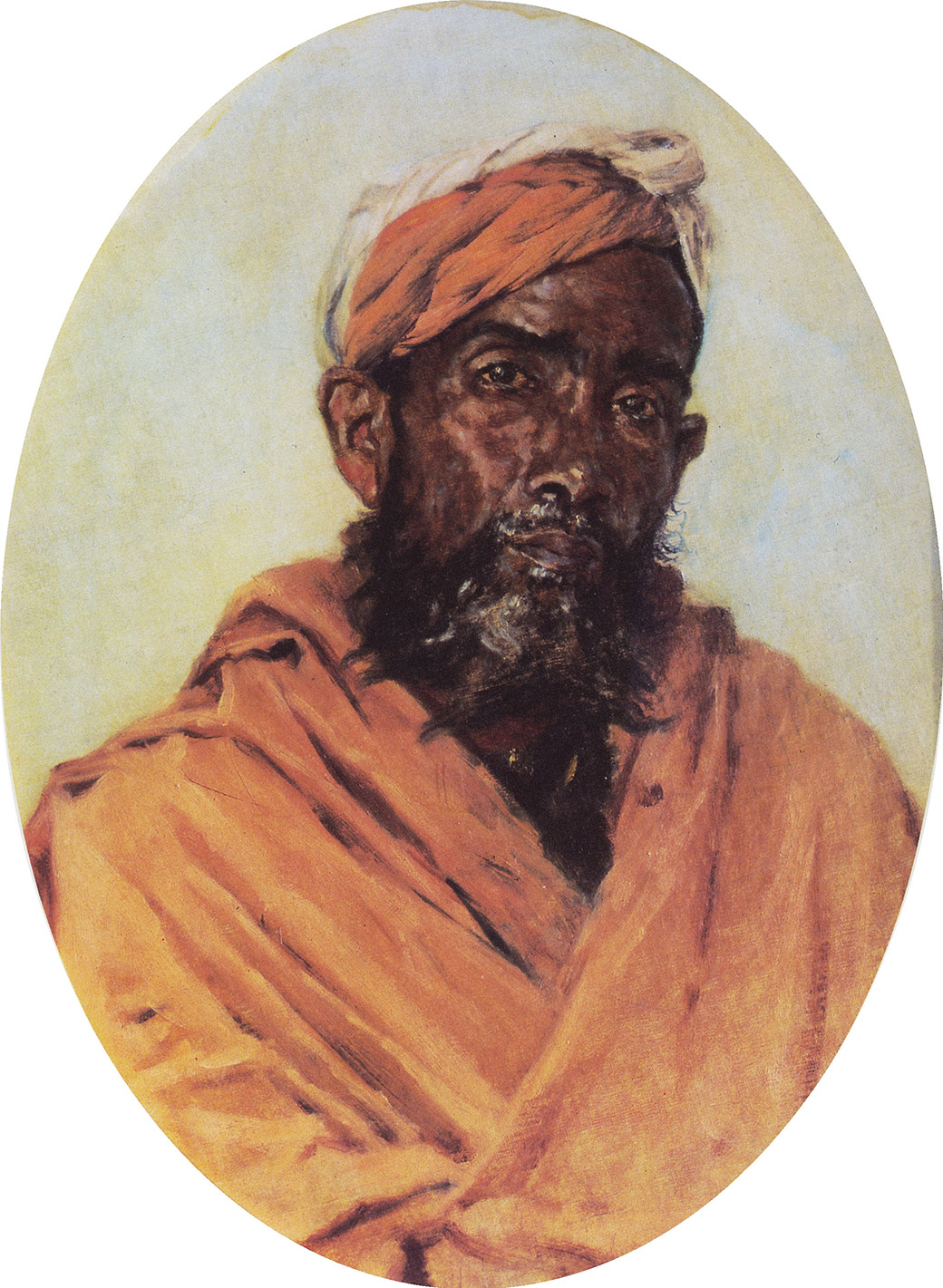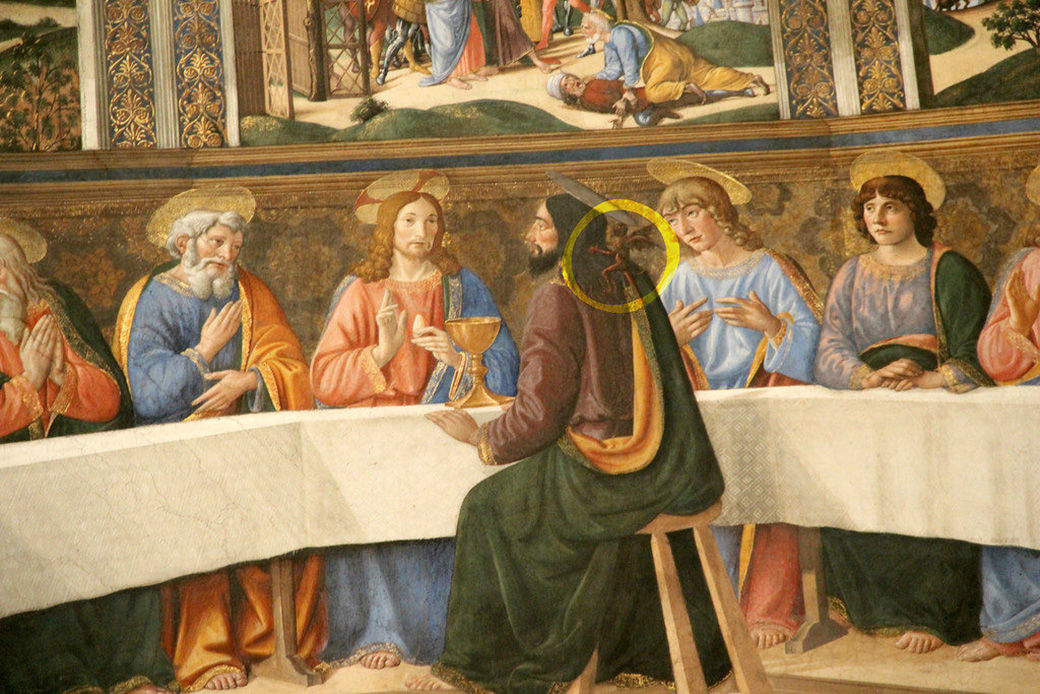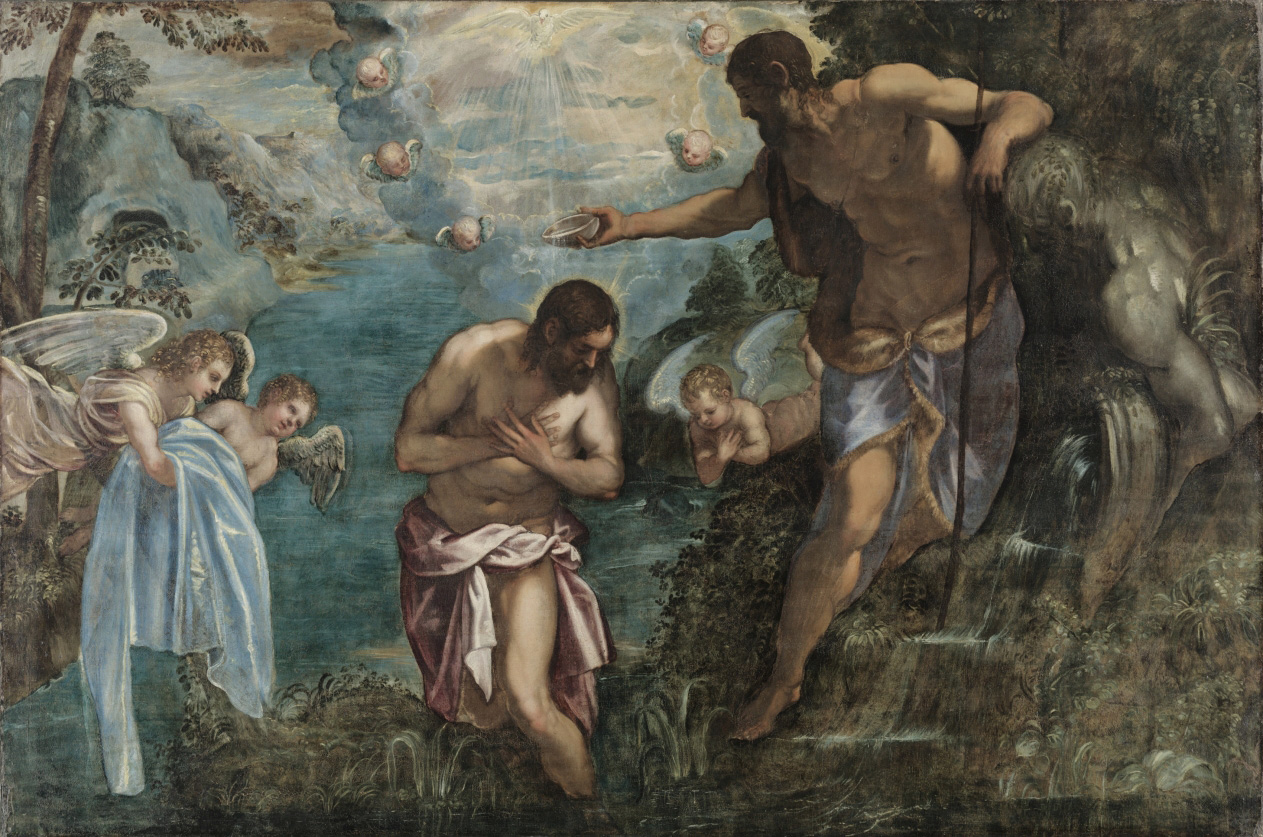Wednesday of Holy Week: Isaiah 50:4-9a, Matthew 26:14-25.
Today’s gospel focuses on Judas’s betrayal, much like yesterday’s reading. Coupled with the first reading from Isaiah, we get a clear look at what it means to live in the light compared to living in darkness.
Today’s first reading is from a section of Isaiah’s prophecy entitled “The Servant’s Humiliation and Vindication” in the NRSV Bible. He speaks in the first person as a blessed servant with a “well-trained tongue” for whom God “opens my ear that I may hear.” This servant accepts his gifts and uses them: “And I have not rebelled, have not turned back. I gave my back to those who beat me, my cheeks to those who plucked my beard; My face I did not shield from buffets and spitting.” This is a person who uses his human faculties and talents with the grace of God and is persecuted for it, like Jesus in His ministry. But this servant is “not disgraced,” he says, “I have set my face like flint knowing that I shall not be put to shame. He is near who upholds my right.” This servant lives fully as a human in the light of God’s presence and graces; as such, God is near to him and no amount of trying by other humans can make him disgraced or ashamed. I am struck by this person’s courage. Aren’t we all raised to be aware of others in our communities, to take care not to offend or make fools of ourselves? But this servant of God, by living fully in the light of God, is not defined not by social morés; he has found the true lodestar for humans: the Word of God for his well-trained tongue, the grace of God to open his ears, and the love of God to give him courage. Let’s think about this love, the source of his courage. This love coincides with a surety in the Lord, a thirst to be with Him, and an unshakable faith that what he has comes from God who has created him.

Thus, the servant is absolutely aware that God lives beside him: “He is near who upholds my right.” I like the Lectionary translation here; the Hebrew is more literally translated as “He is near who vindicates/justifies me.” By using the phrase that the Lord upholds his “right,” we might actually come closer to the nuance in the Hebrew phrase since those words vindicate and justify have taken on a technical aspect after several thousand years of Church theology. We can think of this “right” in several ways. First, tracing the word “near,” the right is a statement of authority due to proximity. In other words, the servant’s sheer proximity to God, his state of “living in the light” of God, gives him the right to speak. Beyond the proximity argument, second is a statement of personal right to speak as an endowment specifically from God. This meaning traces back to the statement that “He…upholds my right.” God is gracing, upholding, this servant’s right to speak. Note that this is different than Natural Law envisioned by John Locke. Locke postulated that God establishes a Natural Law that grants all people certain unalienable rights. Many (myself included) think that scripture does not support Locke’s theory because, in scripture, people regularly lose their lives and communities (i.e., “rights”) when they live outside of God’s commandments and precepts. Today’s reading is a perfect example: the servant can claim his right because he lives in the light of God, as opposed to those who live in darkness. Even with the history-changing reality of Christianity, the basic right is the same: an invitation to accept God into our hearts, not a right for everyone even if they sneer at God and push Him away.
The third way we can think of “right” when the servant says “He is near who upholds my right” is the idea of correctness. God’s Word is truth — the “well-trained tongue” is one that speaks the truth — and we can understand that the servant’s “right” is his accuracy in presenting the truth.
This reading culminates in a bold statement of the servant’s courage: “if anyone wishes to oppose me, let us appear together. Who disputes my right? Let him confront me.” Here is the full reality of the servant living in the light, speaking the truth. There is no space or “right” for those who live in darkness. We see a contrast between courage to speak and cowardice in not speaking, between truth and deceit.

These contrasts are displayed clearly in the gospel reading from St. Matthew, where Jesus gives Judas the chance to be courageous and to speak the truth, but Judas chooses cowardice and deceit. The reading opens with an account of Judas’s visit to the chief priests and his agreement to hand over Jesus for 30 pieces of silver. We can only imagine the darkness of spirit that would have made Judas turn his back on the Word of God, the Truth incarnate. Like John who tells us that “the devil had already put it into the heart of Judas” to betray Jesus, Matthew tells us, “and from that time on he looked for an opportunity to hand him over.” In other words, Judas’s betrayal did not come about in some moment of passion but out of his fallen state.
Just as in the gospel of John, Matthew tells us that while they were eating, Jesus says, “Amen, I say to you, one of you will betray me.” What is the point of saying this? Is it meant to alarm them, stir them up with doubt and suspicion of one another? St. John Chrysostom provides a window into what may have been Jesus’s motivation; he writes, “And before the supper, He had even washed his feet. And see how He spares the traitor. For He said not, such a one shall betray me; but, “one of you,” so as again to give him power of repentance by concealment. And He chooses to alarm all, for the sake of saving this man” (Homilies on Matthew, 81.1). As we reflected yesterday, Christ the Good Shepherd is at work, especially here when one of his chosen apostles’ souls is at stake. In Chrysostom’s view, Christ is trying to give Judas a chance to come back into the light of God.

Even after the distressed apostles say, “surely it is not me, Lord,” Jesus gives a dire warning, a last chance for Judas to come clean: “The Son of Man indeed goes, as it is written of him, but woe to that man by whom the Son of Man is betrayed. It would be better for that man if he had never been born.” Jesus has committed Himself to “going,” as John tells us, “Jesus knew that his hour had come to depart from this world and go to the Father.” An interesting question to ponder is if He needed to be betrayed to the chief priests; if someone had to do it even if it wasn’t Judas. It seems quite plausible that He could have simply walked into the temple the next day of His own accord and started the sequence of arrest and death. So let’s take Him at His word that He was willingly accepting death and did not need to be betrayed. Then we must also see His attempt to save Judas from this great sin as genuine. He truly hoped to save Him and keep him from committing this betrayal. But, as we are taught, God has given humanity free will to accept or reject Him, and in this choice lies our own salvation.
Another way to think of this is in terms of fate. “Fate” is a concept that doesn’t take responsibility for the reality of humans making choices in regards to God’s invitation to be with Him. Instead, “fate” makes it seem like its’ all out of our hands. I don’t think Judas was “fated” to betray Jesus, and based on today’s reading, Jesus didn’t believe that this was somehow pre-ordained by God because He tries to save Judas from this error.
So, what happens when Jesus speaks in truth like Isaiah’s courageous servant, saying, “if anyone wishes to oppose me, let us appear together.” He invites Judas to speak openly of any concerns or changes of heart, to return to Him, without calling him on the carpet in front of the other apostles. What is Judas’s response? “Surely it is not I, Rabbi?” He hides in the cover of deceit, he takes on cowardice rather than courage. This is because he has taken the devil into his heart rather than God and he operates in the devil’s ways. Jesus simply (and I must imagine sadly) responds, “You have said so.” This is the only sad truth He can utter in the face of Judas’s cowardice and deceit. Chrysostom gives us a heck of a reaction to this:
Oh insensibility! He inquires, when conscious to himself of such things. … What then says the most mild and gentle Jesus? “You say.” And yet He might have said, “O thou unholy, thou all unholy one; accursed, and profane; so long a time in travail with mischief, who hast gone your way, and made satanical compacts, and hast agreed to receive money, and hast been convicted by me too, do you yet dare to ask?” But none of these things did He say; but how? “You say?” fixing for us bounds and rules of long suffering (Homilies on Matthew, 81.2).
I love Chrysostom’s commentary here, if for nothing else because it shows that in 395 AD, his jaw was dropping at the deceitfulness of Judas in the same way mine is today. I also appreciate how he concentrates on the “most mild and gentle Jesus,” who sets an example for us on “long suffering,” that is, patience in the face of troubles caused by others.

Let us take the challenge from Christ to live in the light of God, to have our “right” come from Him and Him alone. May we well heed the terrible choice that Judas makes to turn his back on God and live in the cowardice and deceit of the devil; “woe to that man.”
Pingback: As I Have Done for You, you should also do